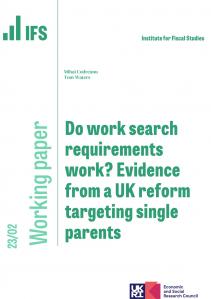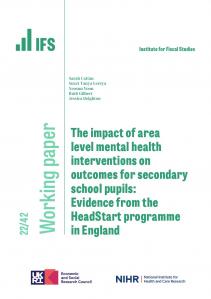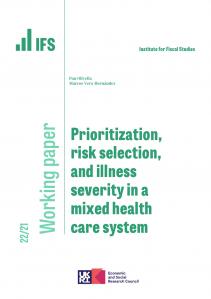The key question for the next Government is what size and combination of public spending cuts and tax increases to implement to repair our public finances. Anyone looking for a more detailed answer from Labour in its manifesto will have been disappointed. The party listed plenty of new things it would like to do, but was no clearer about where the spending cuts would fall. And it listed a few tax increases that it promised not to implement, but left the door wide open to many others.
Specifically on tax, the manifesto promised that: "We will not raise the basic, higher and new top rates of tax in the next Parliament and we renew our pledge not to extend VAT to food, children's clothes, books, newspapers and public transport fares."
This is very similar to the promises Labour made in its previous three manifestos. Namely:
- 2005: "We will not raise the basic or top rates of income tax in the next Parliament... We renew our pledge not to extend VAT to food, children's clothes, books, newspapers and public transport fares."
- 2001: "We will not raise the basic or top rates of income tax in the next Parliament... We renew our pledge not to extend VAT to food, children's clothes, books, newspapers and public transport fares."
- 1997: "To encourage work and reward effort, we are pledged not to raise the basic or top rates of income tax throughout the next Parliament... We renew our pledge not to extend VAT to food, children's clothes, books and newspapers and public transport fares."
But, as we show in an Election Briefing Note published today (The tax burden under Labour), these pledges have not stopped Labour from implementing net tax increases since 1997 that will cost families £31.1 billion this year (£970 per family) and almost half as much again - a total of £45.4 billion (£1,420 per family) in today's terms - by 2014-15, once the tax increases already announced in recent Budgets and Pre-Budget Reports for implementation during the coming Parliament take effect.
Among the largest of these tax increases are the rises in National Insurance Contributions (NICs) announced in the 2002 Budget, the 2008 Pre-Budget Report and the 2009 Pre-Budget Report. For the majority of people, who receive most of their income in wages and salaries, an increase in NICs is to all intents and purposes the same as a rise in income tax rates. And it is not obvious therefore why they should be reassured by a pledge on income tax that does not extend to National Insurance.
As it happens, Labour did of course breach the promise it made on income tax rates in the 2005 manifesto by announcing a new 50% income tax band to take effect from the current financial year. Even if the Treasury's potentially overoptimistic assessment of the revenue to be raised is correct, this will make only a modest contribution to the net tax increase announced since the financial crisis.
Labour has also raised revenue by failing to increase tax allowances and thresholds in line with rising real living standards - so, rather than raising the basic and 40p income tax rates, it has increased the number of people paying them. On current policy the number of people paying tax at the 40% and 50% rates is set to continue increasing significantly over the coming Parliament.
The analysis we publish today shows that the widest measure of the total tax burden (total government revenue as a share of national income) has risen since 1997, albeit by much less than the value of Labour's announced tax increases. This reflects the impact on revenues of factors such as the recession and the particular plight of the previously tax-rich financial sector.
In contrast, most industrial countries have reduced their tax burdens since 1997. On an internationally comparable definition, the UK has moved from having the 8th lowest tax burden of 28 OECD countries in 1997 to having the 13th lowest in 2010. If the UK had seen its tax burden fall by the same proportion of national income as the unweighted average of the other 27 countries, then in 2010 it would be 3.3% of national income below that forecast by the OECD for this year - a difference of £49 billion in today's terms or £1,520 per family.
The tax burden has risen in the UK partly because Labour has chosen to spend more on public services and on financial support for poorer families with children and pensioners. Spending has risen particularly sharply as a share of national income since the financial crisis, reflecting higher welfare bills, higher debt interest and a shrinking economy.
As we describe in a second Election Briefing Note published today (Public spending under Labour), the UK had the second largest increase in public spending as a share of national income of 28 industrial countries between 1997 and the eve of the financial crisis in 2007. Taking the period of the financial crisis into account as well, the UK recorded the largest increase from 1997 to 2010. This has moved the UK from being the 22nd highest spender of 28 in 1997 to the 6th highest in 2010.
Figures from the Office for National Statistics show that one result of the pre-crisis rise was a big increase in the quantity and quality of public services we enjoy. It estimates that public services output (adjusted for quality as best it can) had increased by more than 33% between 1997 and 2007. But the amount of inputs required - and the cost of those inputs -increased even more.
We therefore estimate that the "bang for each buck" that we get from public services spending has fallen by more than 13% over the same period. If Labour had managed to maintain the "bang" it inherited in 1997, it could have delivered the same quality and quantity of services that it delivered in 2007 for £42.5 billion less - or it could have provided 15.5% more or better services for the same money.
But this is not necessarily proof of unnecessary waste. The quality of public services may have improved in ways that the ONS does not measure. Some cost increases may have been unavoidable. And some increases in public sector inputs may only be fully reflected in the quantity and quality of service outputs after a significant lag - if so, we may not yet have seen the full benefit.
Whatever the case, the outlook for spending on public services looks much bleaker over the next few years, and it would futile to hope that the quality and quantity of services will be unaffected. Labour's manifesto has left us none the wiser as to where exactly the axe will fall, but fall it will.









